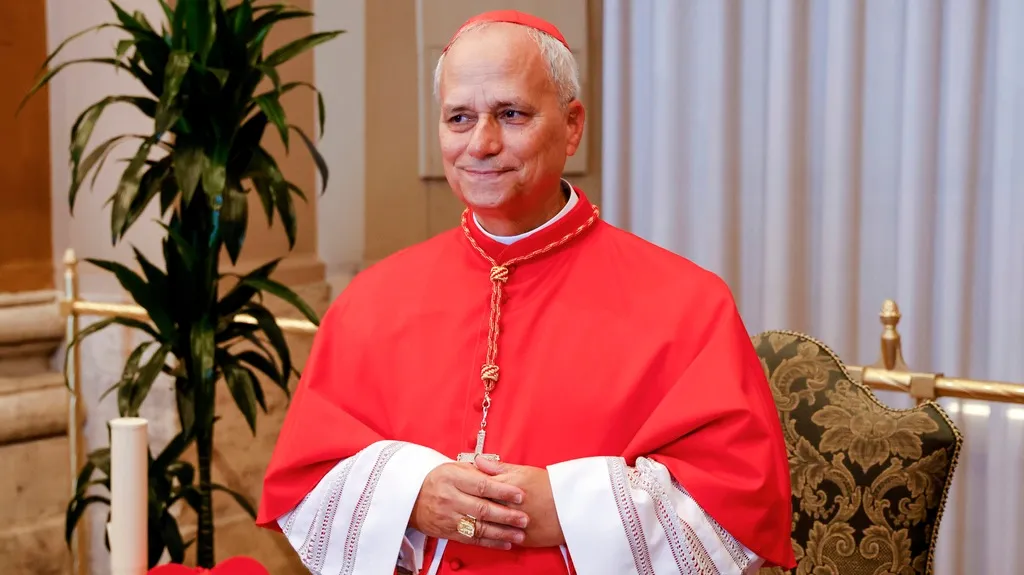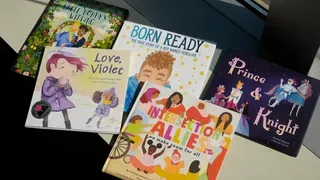March 23, 2012
EQCA struggles for direction
Kevin Mark Kline READ TIME: 6 MIN.
For the last several months, Equality California, the statewide LGBT lobbying organization, has struggled for direction.
Since its founding more than 10 years ago, the organization has helped bring about state laws that address everything from student bullying to employment and housing protections for transgender people.
But when former Executive Director Geoff Kors left in March 2011, after nine years in the post, EQCA appeared to lose its focus, and the leadership since then has been in flux.
After a lengthy search, Roland Palencia became executive director last July, but he resigned just three months later. His departure came soon after EQCA's board decided not to pursue a repeal of Proposition 8, the state's same-sex marriage ban, this year.
Last month, EQCA brought in interim Executive Director Laurie Hasencamp, who's expected to be with the group for about four to six months. But the organization hasn't announced any plans for what it will do after her stint is over.
The cluster of bills that EQCA recently announced it's backing this legislative session is smaller than in previous years. And people who've worked with the nonprofit are concerned that it continues to be a strong organization.
Spokeswoman Rebekah Orr said EQCA remains "an essential organization not only to the movement in California, but nationally. We continue to advance legislation that serves as a model for potential advances in equality."
She also pointed to EQCA's support of elected officials, among other activities.
"I think it's understandable for people to wonder, 'Where is Equality California?'" Orr said. She said recent months have been "very challenging," but said, "We are in a position now to be very forward looking, and I think over the next several months our community will come to understand that is indeed the case."
Slim slate of bills
EQCA is so far formally backing only a handful of legislation this year.
Assembly Bill 1505, introduced by Assemblyman Dr. Richard Pan (D-Sacramento), would guarantee support for LGBT military families.
Assemblywoman Betsy Butler's (D-Marina Del Rey) AB 1700 is designed to keep LGBTs from losing their homes when a partner dies.
AB 2356, introduced by Assemblywoman Nancy Skinner (D-Berkeley), would ensure that women in same-sex relationships can access fertility services on the same terms as women in opposite-sex relationships.
Finally, gay state Senator Mark Leno's (D-San Francisco) Senate Bill 1140 would clarify that religious leaders wouldn't be punished by the state for refusing to marry same-sex couples.
Most of the legislation isn't new. Except for AB 2356 and AB 1505, EQCA has previously backed the proposals in some form.
Orr, who joined EQCA around the same time as Palencia, defended the organization's slim list of legislation.
"In the past, what we have done is come out with a whole bunch of bills at the beginning of the session," she said. " ... We'll be announcing some additional legislative work in the coming weeks."
The bills are "under development," Orr said. She declined to offer more specifics. "We want to make sure we are careful about alerting our opposition to what we're working on and limiting their time to organize against us," she said. She did say, "The bills will be primarily youth focused."
'Significantly stronger'
Despite EQCA's struggles, Orr said, "I would say we're in significantly stronger shape than we were several months ago."
Among the factors she pointed to are that "the financial picture is significantly better" and "the staff has grown significantly in the last several months."
Orr said, "I think an indicator of our strength as an organization is where we are in terms of raising our total anticipated budget for the year."
She said that in 2011, the initial projected budget for EQCA and its affiliated Equality California Institute had been $3.5 million. EQCA ended up raising just $2.5 million.
This year, Orr said, the budget for the organization, which is based on the calendar year, hasn't yet been finalized. However, she said, the goal is to bring in about $2.5 million. As of last week, EQCA had raised almost $1.4 million. The majority of that money has come from foundations.
Orr said that money would be used for activities including the Breakthrough Conversation project, a campaign designed to educate people about LGBT issues; advance legislative work; and help "elect and protect" pro-equality officials.
The funds may also be needed for an initiative campaign if opponents of the Fair, Accurate, Inclusive, and Respectful Education Act succeed in getting a repeal measure on the ballot in November. The law, also known as Senate Bill 48, requires that California school students be taught about LGBTs' historical contributions.
Orr acknowledged the budgeting process this year has been slow.
"In an ideal world, I think we would finalize a budget very early in the year," she said. However, she said, the organization "has been in flux. We've been looking at how we prioritize the work that we're doing, and we're being really realistic about what it will really cost. I think we've taken a very cautious approach ... to make sure we really maximize donor dollars."
One area EQCA is cutting expenses in is the San Francisco Equality Awards, which is planned for April 14. Last year, the organization spent $119,000. Orr said they're anticipating expenses of $90,000 this year.
Orr said they've also increased the size of their field team, while the development staff is "much leaner."
She said in October 2011 there were 12 staff members. Now, EQCA has over 50, and they're recruiting for more.
Field staff accounts for much of that growth. Orr said those people are talking to voters through street-based and door-to-door canvassing, primarily in southern California; and phone banking statewide.
She said they're mainly talking to people about the FAIR Education Act and also "identifying new supporters of marriage equality."
Optimism
Several people seemed to express cautious optimism about EQCA's future.
Gay Assemblyman Tom Ammiano (D-San Francisco), who's worked with the organization on legislation, said, "My experience this year has actually been a positive one." He pointed to EQCA working again with Alice Kessler, who previously served as EQCA's government relations director from 2005 to 2009, and said, "She's been extremely helpful."
Kate Kendell, executive director of the National Center for Lesbian Rights, worked closely with EQCA's former director Kors during the unsuccessful No on 8 campaign in 2008. Both served on the campaigns' executive committee.
Like others, Kendell indicated that she wasn't intimately familiar with EQCA's staffing and financial troubles.
However, she said, "I think it's very important for California to have an effective and muscular statewide LGBT political organization. We've won huge gains based largely on EQCA's leadership, but those can slip, and we can go backwards."
EQCA's "rebuilding mode needs to be supported, and we need them back at full staff, and full strength, being the go-to organization for political, legislative, and policy development in California," she said.
Kendell's made financial contributions to the statewide lobbying organization in the past, but she said she hasn't decided whether to support it this year.
EQCA is a member of the national Equality Federation. Executive Director Rebecca Isaacs said her organization aids groups with capacity building, communications issues, and other matters.
Like others, Isaacs talked about the importance of EQCA being strong, but seemed hesitant to say the nonprofit's in good shape.
Asked about that, Isaacs said, "I think that basically the life of all the states' organizations involves ebbs and flows, and I think after a major campaign there's often a retrenchment. ... Fundraising ebbs and flows, the issues ebb and flow, and our goal is always to work to help the organizations be as strong as they possibly can."
San Jose resident Clark Williams, a co-chair of the state Democratic Party's LGBT Caucus, invited EQCA's Kessler to give caucus members an update on the agency during the party's convention earlier this year.
"I think all of us are concerned about the status of EQCA. I still really believe there is a critical role for EQCA to play," said Williams. "And I want to see them to continue and secure investments from our community to do a lot of legislative work they have been engaged in for many years."
The leadership vacuum at EQCA could be a major opportunity for the agency, said Williams. Who EQCA hires as its new leader could be as impactful as the recent hiring of Chad Griffin as the next president of the Human Rights Campaign, he said.
"There has been a lot of celebration over the new leadership of HRC. In some parts of California people don't like HRC because of the views they have about the leadership. I think EQCA is the same way," he said. "One good hire could make a big difference in what the LGBT community feels about that organization."
He also said, "My belief is we all need to give them some room to try to fix what may be broken," said Williams. "At the end of the day I believe there is a role for EQCA to play in our LGBT community. It may be different than the work it was doing a few years ago, but we are also a different community than a few years ago."
For more information on Equality California and the San Francisco Equality Awards, visit http://www.eqca.org.
Matthew S. Bajko contributed to this report







